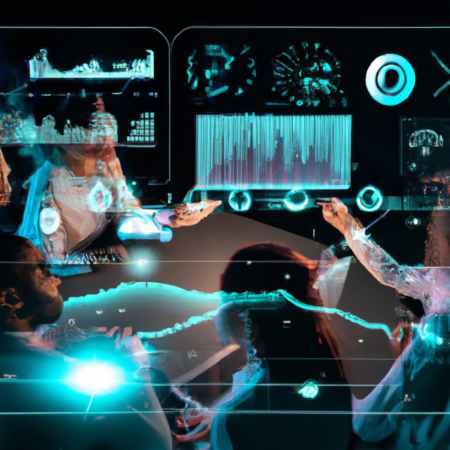Harnessing Hyper-Personalization: Revolutionizing Marketing Strategies in 2025
As we step into the second quarter of 2025, the landscape of digital marketing continues to evolve at an unprecedented pace. The key to staying ahead in this competitive arena? Hyper-personalization. In this deep dive, we explore how cutting-edge technologies and data analytics are reshaping marketing strategies to offer more tailored experiences that not only engage but also convert.
Understanding Hyper-Personalization
Hyper-personalization goes beyond traditional personalization techniques. It involves using real-time data to provide more accurate and relevant product recommendations, tailored content, and personalized customer journeys. The integration of AI and machine learning has made it possible to analyze vast amounts of data quickly and accurately, enabling brands to deliver unique experiences at an individual level.
Technological Drivers in 2025
This year, several key technologies have become central to deploying hyper-personalized marketing strategies. AI-powered algorithms can predict customer behavior more accurately than ever before. IoT devices provide a stream of real-time data that helps businesses understand context and behavioral patterns. Additionally, AR and VR are being used to create immersive shopping experiences that captivate consumers’ attention and drive engagement.
Case Studies and Success Stories
Leading brands are already seeing significant improvements in customer retention and satisfaction by implementing hyper-personalized strategies. For instance, a retail giant reported a 30% increase in conversion rates after integrating AI-driven product recommendations into their online store. Another example is a travel company that uses personalized VR experiences to let potential travelers ‘visit’ destinations before booking their trips, resulting in higher ticket sales.
Strategies for Implementation
Implementing hyper-personalization requires a well-thought-out strategy. Businesses should start by upgrading their data analytics infrastructure and training their teams in data literacy. Building partnerships with technology providers is also crucial to gaining access to the latest tools and innovations. Finally, it’s essential to maintain an ethical framework for using customer data, ensuring privacy and transparency to build trust.
Looking Ahead
As technology continues to advance, the possibilities for hyper-personalization in marketing will only grow. Businesses that adopt these strategies early and refine them continually will likely see the greatest success. The future of marketing is here, and it’s highly personalized.






